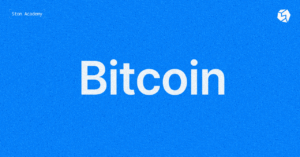Web3 is the next stage of the Internet, as described by most tech enthusiasts and experts alike. The decentralized version of the web is predicted to be much faster, more intuitive, reliable, transparent and user-oriented than its Web2 counterpart that we are all using today. Most importantly, Web3 is supposed to be based on blockchain technology, meaning that it will be entirely decentralized and will eliminate the need for any intermediaries, thus greatly expanding the liberties of users and ensuring the security of their personal data.
Web3 will be using artificial intelligence and machine learning as a basis for many of its services, thus facilitating communication and interaction with users. The trading arena will certainly be influenced by such a development as well, since Web3 will be intuitive and will allow traders to leverage a broad range of innovative services that are simply impossible to apply in Web2.
The impact of Web3 on trading
The biggest shift from traditional trading on the blockchain in a limited decentralized environment integrated into Web2 towards an entirely blockchain-based environment is the use of AI. Investors have long been attempting to capitalize on the capabilities of AI for developing sustainable and profitable trading strategies. The main selling point of AI is that it is capable of processing almost infinite amounts of data in seconds and extracting valuable insights and possible patterns that can be applied in trading. Such high-performance computing and data mining is vital for market analysis.
On-chain storage of assets and full custody of wallets is another major advantage of Web3, as it will give users of the space the chance to interact entirely within the decentralized domain, mainly even without the use of fiat funds of related gateways. With such user-centric control, the need for intermediary services will likely fade, freeing up vast amounts of funds saved on fees and service charges for liquidity and development. By bypassing the redistribution channel, businesses will also have a direct connection with their clients, opening up entirely new communication channels. The opportunities for decentralized brokerage as a service are also on the table in Web3.
The main points of impact of Web3 on trading as a whole can be summarized as such:
- The open nature of the Web3 space will pave the way for entirely new and transparent open-source platforms, eliminating any chance of centralized oversight, censorship or control.
- The trustless environment of Web3 will reduce the involvement and reliance on third parties to a bare minimum, effectively canceling the involvement of clearinghouses and brokerage on a centralized level.
- The permissionless fashion of Web3 operation will automatically erase any entry barriers and lower thresholds, allowing anyone with any amount of funds to enter the market, effectively turning trading from an elite-only activity to a common practice.
- The availability of AI and the myriad open-source software suites based on it available in Web3 will make algorithmic trading possible for anyone, making retail investing accessible to even individuals with no or little knowledge of investing and trading.
There is, however, a downside of Web3 development. The parties most affected by the development of Web3 will likely be centralized exchanges, intermediaries and monopolistic platforms that cater to elites and major investors. Though it is safe to assume that such entities will quickly adapt to the predominance of Web3 space and will leverage their vast amounts of available capital to adjust to the new paradigm of decentralized trading.
Key selling points of Web3 and opportunities
The Web3, apart from acting as an open-source and fully transparent ledger of operations, will allow for broader adoption of blockchain and related applications. The increasing introduction of gamified elements into trading via the TradeFi and GameFi models is accelerating the entry of retail investors into Web3 through metaverses and similar ecosystems.
The Internet-based model of operations in Web3 means that it will be accessible via mobile devices, offering multiple opportunities for people who had previously been restricted from investing by bureaucratic barriers.
Another upside is the inevitable increase in demand for financial advisory services as more people will be entering the trading environment and will require guidance.
Lastly, big data companies will strive to capitalize on the vast amounts of information in Web3 to create prediction models and identify trends that can be leveraged for making profitable trades.
The role of decentralized exchanges in Web3
Web3-based decentralized exchanges will likely play a crucial role in the new iteration of the Internet. Since decentralized, Peer-to-Peer exchanges operate on a level that involves no intermediaries and foresees direct transactions between users, they are the ideal venues matching the essence of the Web3 space.
The immutable nature of the blockchain-based DEX adds security to all operations conducted on its basis and prevents the chance of loss of funds through hacking or identity theft. In addition, the transparency of decentralized exchanges answers the requirements of Web3, ensuring the fairness of trade and preventing manipulation with orders.
Most importantly, decentralized exchanges are globally accessible via a simple smartphone, making them ideal platforms for conducting trading operations in Web3. The reduced costs of such exchanges, given their lower transaction fees, add value and benefit all parties to a trade.
The future of trading with Web3
The ongoing development of the Web3 space and the modules that will be making it up allow us to make several important predictions about the possible advantages that such a shift in trading will bring. The enhancement of the user experience is the biggest selling point, as it will entail the integration of multiple innovative tools like machine learning and AI together with traditional services from the world of finance on a decentralized basis.
The interoperability of Web3 and various blockchains will result in the development of a vast and all-encompassing infrastructure that can host countless services, businesses and ecosystems, paving the way for unlimited trading opportunities. The security provided by the blockchain will ensure complete compliance with regulatory norms and enhance application of Know Your Customer and Anti-Money Laundering procedures. With user privacy and personal data protected, the risk of fraud, identity theft, and hacking will also be greatly reduced.
Most importantly, Web3 will allow for integration of traditional assets and blockchain-based digital assets trading. Such a seamless merger of technologies from the traditional and innovative domains is the key appeal of Web3 and a combination of long-standing user demands.





